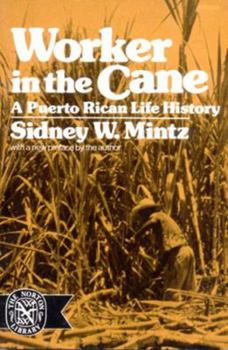Worker in the Cane: A Puerto Rican Life History (Revised)
Select Format
Select Condition 
Book Overview
Worker in the Cane is both a profound social document and a moving spiritual testimony. Don Taso portrays his harsh childhood, his courtship and early marriage, his grim struggle to provide for his family. He tells of his radical political beliefs and union activity during the Depression and describes his hardships when he was blacklisted because of his outspoken convictions. Embittered by his continuing poverty and by a serious illness, he undergoes...
Format:Paperback
Language:English
ISBN:0393007316
ISBN13:9780393007312
Release Date:November 1974
Publisher:W. W. Norton & Company
Length:314 Pages
Weight:0.69 lbs.
Dimensions:0.9" x 5.1" x 7.7"
Customer Reviews
1 rating
Hats off to Sidney W. Mintz
Published by Thriftbooks.com User , 24 years ago
Sidney W. Mintz humanizes the `cane worker' in this vibrant ethnography in which he combines knowledge gained during a formal research period (`48 - `49) with the autobiography of his key informant, Taso (Anastacio {Eustaquio} Zayas Alvarado). The critical core of this ethnography, the autobiography, was an afterthought. Shortly after the conclusion of his field work with Mintz, Taso joined the Pentacostal Church. Mintz was astonished and perplexed by Taso's decision since he thought he knew Taso and viewed him as a practical, intelligent man not vulnerable to seemingly irrational and spontaneous life choices. Mintz returned to P.R. in 1953 to unearth the reasoning underlying the conversion and in the course of his search (lucky for us) he assembled Taso's autobiography. Taso's life story is interwoven with Mintz's personal observations of Taso, interviews with Taso's wife, Elí (Elisabeth Villaronga Colón de Zayas) and Mintz's commentaries based on information gathered during the `48 -'49 research period. The combination of autobiography and ethnography brings Taso, his family and the neighboring Juaqueños to life. These are warm bodied human beings we can care about, not the deadwood of the traditional ethnography. May 22, 2000





